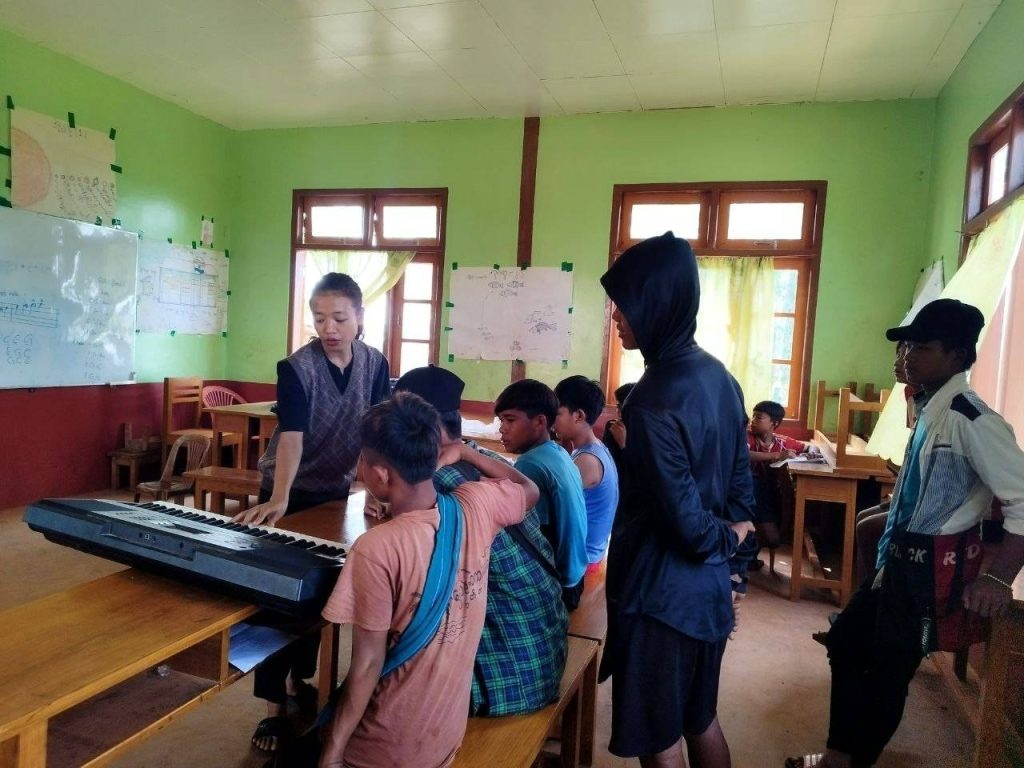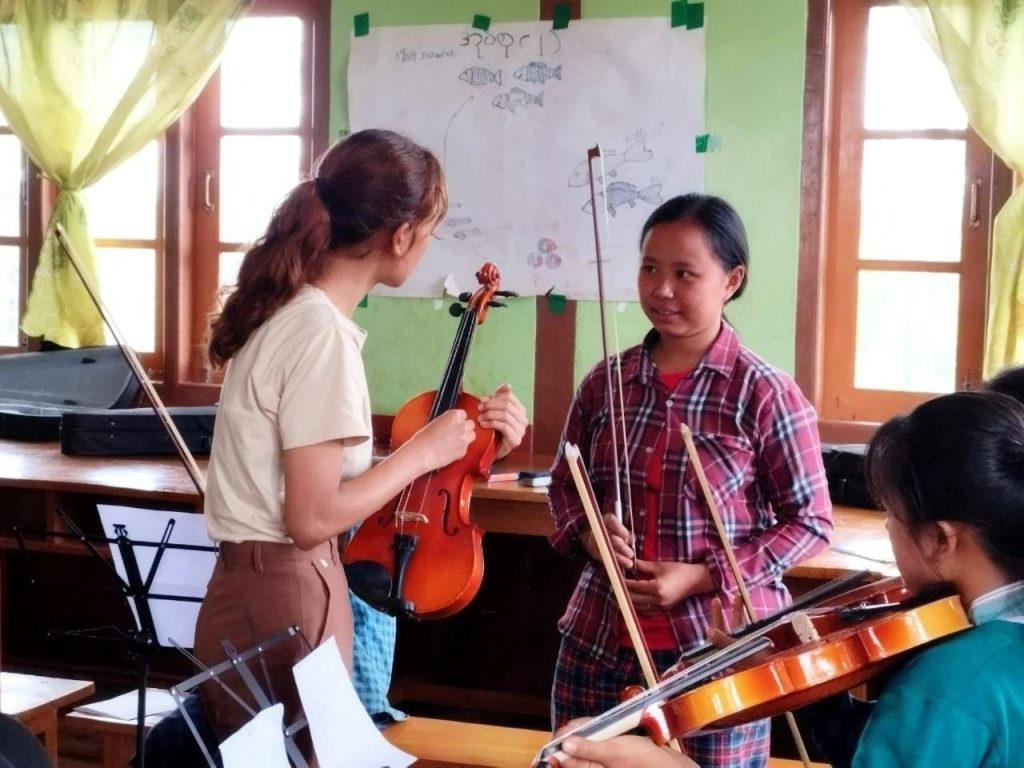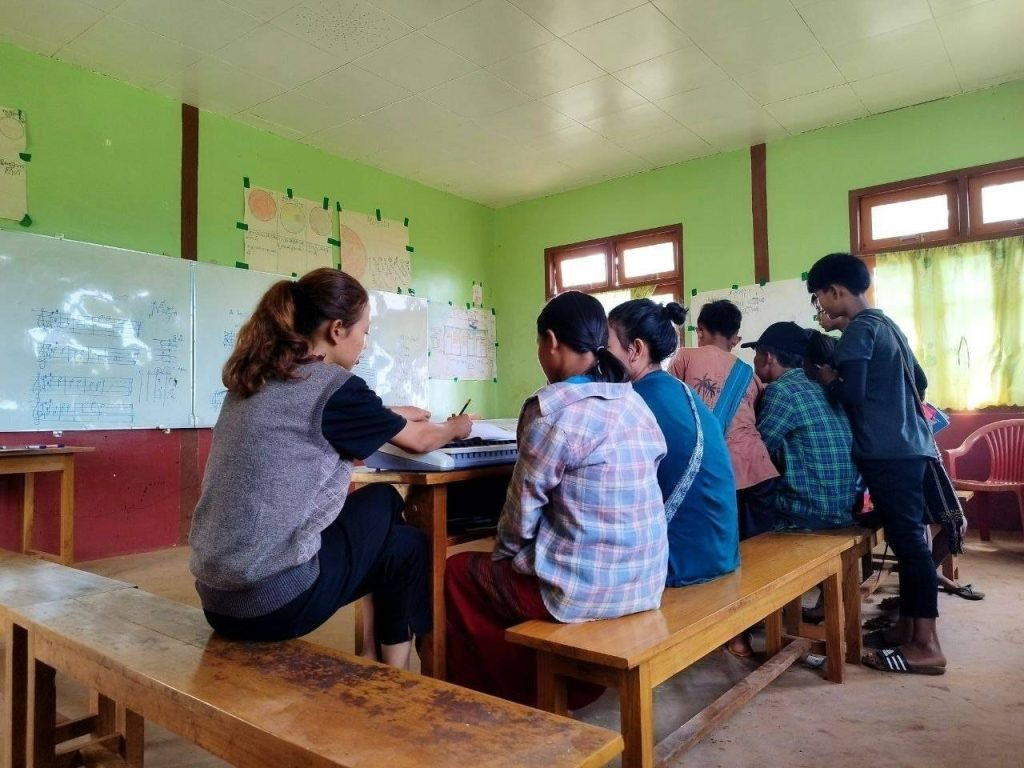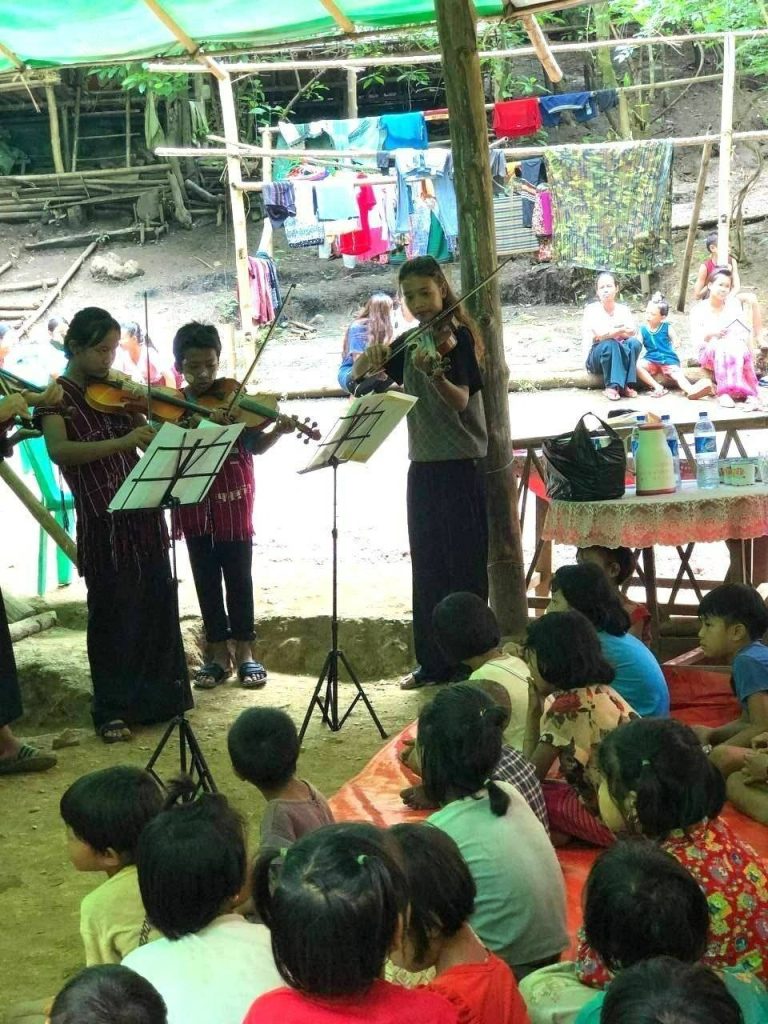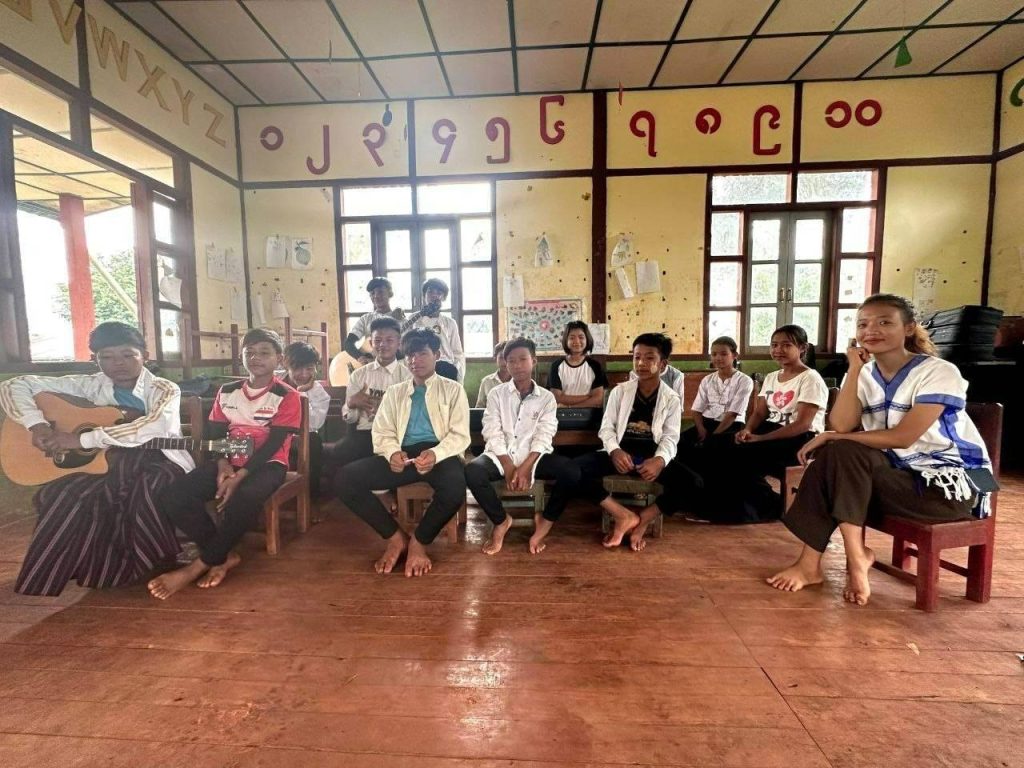“Htel Phoe” The Power of Music for Children
12 October 2023
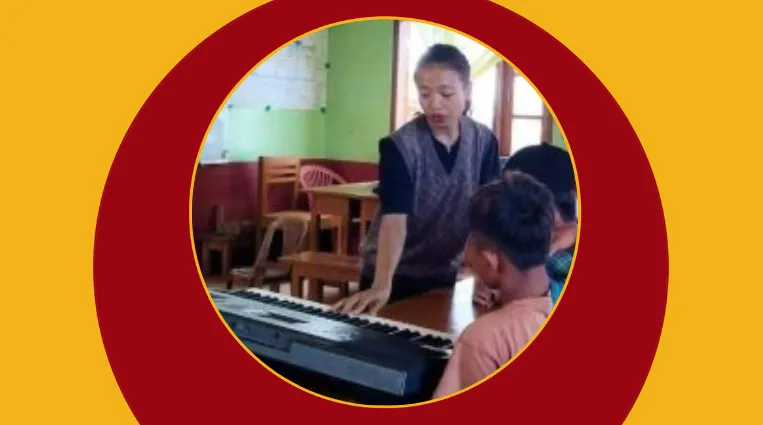
Devi
A diverse age of young children and youth, are engrossed in playing musical instruments inside a compact hut with a roof made of green tarpaulin sheets. Among them, a few are playing the guitar and violin, while others joyfully sing along to the rhythm. This moment of playing music and singing serves as a precious source of joy helping them endure and persevere as a moment for them to keep surviving their daily lives under heavy weapons and airstrikes.
This is a musical training program for children in the IDP camp, led by Maw Phrae Myar. The program is known as “Htel Phoe,” which translates to “golden flower.” Maw Phrae Myar has been running this music training program for the past two years.
At the age of 23, Maw Phrae Myar had attended a music school in Yangon. However, she decided to return to Karenni during the COVID-19 pandemic and began organizing training sessions for violin and piano.
She had been studying both violin and piano. If the coup had not occurred, she might have completed her degree in music and could have pursued her dream of establishing a music school in Karenni, her hometown.
“If there hadn’t been a coup, I could have continued my own learning and also shared more knowledge with the children,” remarked Maw Phrae Myar.”
Since the coup, she initiated her assistance to the IDPs, engaging in teaching, providing clothing, and offering nutritious meals. Additionally, she began teaching music to the children, while noticing their enthusiasm for playing the guitar after dark.
“When I play the guitar and sing songs, the children really enjoy it. That’s when I decided to start teaching them,” expressed Maw Phrae Myar.
The “Htel Phoe” training school provides violin, guitar, piano, and music theory lessons to children from the IDP community. In other IDP camps, these music sessions are also included as part of the school curriculum.
Children from the IDP community lack access to regular schools and the opportunity to play like their peers. Nonetheless, they find joy in the music classes.
“They appear to be more interested in the violin, guitar, and piano, but less so in music theory,” noted Maw Phrae Myar.
The ongoing conflict between the Myanmar military and Karenni resistance forces in Kayah has led to a significant increase in the number of displaced persons (IDPs). Karenni now hosts the third-largest population of IDPs, and among the 250,000 refugees, 75% are women and children.
Children endure difficulties sleeping amidst mosquitoes and insects, leading to issues such as diarrhea and various skin allergies.
Struggling to survive, both parents and children experience health challenges and endure psychological trauma.
Since these children have to leave their homes and reside in refugee camps, grappling with poverty, whenever they hear the sound of an approaching plane, they must quickly run and seek shelter, bearing the burden of trauma from constant insecurity.
“They may not have the words to express their trauma, but they express their emotions through drawings of guns, airplanes, crashes, and bombings,” explained Maw Phrae Myar.”
“To reduce the trauma experienced by children, I introduced this music training program. I believe that musical instruments and the rhythm of music can help reduce their stress. I’ve also organized activities to instill a sense of resilience in them,” she explained.
“This is very important for providing psychological support to both the children and their parents,” emphasized Maw Phrae Myar.
As she travels from one location to another to provide music lessons, the ongoing conflict poses security concerns, along with unpredictable weather conditions and transportation challenges.
Since she is constantly on the move, traveling between IDP camps with musical instruments poses the most significant challenges for her.
Especially during periods of conflict, it becomes a significant obstacle for her to move around with these musical instruments. Just like the people, these instruments require special care to prevent them from being damaged or destroyed.
“Some of the violins, which were donated for the children, got damaged due to the weather”, Maw Phrae Myar explained.
Despite the numerous obstacles and challenges they encounter, they all take pleasure in their learning experience, which in turn contributes to a noticeable improvement in reducing psychological trauma.
Recently, Maw Phrae Myar and another trainer have been overseeing this music program for children from IDPs. The program’s primary aim is to reduce psychological trauma and foster a new generation of musicians.”
Maw Phrae Myar, who has a deep passion for music and teaching children, aspires to establish a music school once peace is restored in the country and she hopes to dedicate the remainder of her life to this dream.
Announcements
28 February 2025
Asian NGO Network on National Human Rights Institutions , CSO Working Group on Independent National Human Rights Institution (Burma/Myanmar)
Open letter: Removal of the membership of the dis-accredited Myanmar National Human Rights Commission from the Southeast Asia National Human Rights Institution Forum

Progressive Voice is a participatory rights-based policy research and advocacy organization rooted in civil society, that maintains strong networks and relationships with grassroots organizations and community-based organizations throughout Myanmar. It acts as a bridge to the international community and international policymakers by amplifying voices from the ground, and advocating for a rights-based policy narrative.
